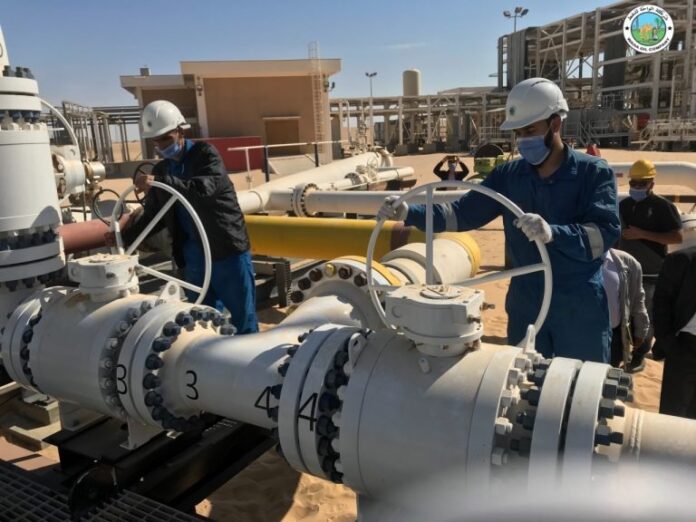Libya, once a dominant force in the global oil market, now faces substantial hurdles in realizing its oil potential, stemming from a tumultuous history marked by political turmoil, sanctions, and internal strife. Back in 1970, Libya stood as the world’s second-largest Arab oil producer, boasting a production peak of nearly 3.4 million barrels per day (mb/d). However, more than fifty years later, its current production stands at a mere 32 percent of that peak, ranking it 18th globally. Despite harboring aspirations to reach an output of 2 million barrels per day by 2030, the nation’s progress has been stymied by political and governance challenges.
Over the last four decades, Libya’s proven oil reserves have doubled, solidifying its status as Africa’s largest reserve holder. Yet, the country’s ability to capitalize on this wealth has been hampered by persistent political instability and governance issues. Oil revenue constitutes a staggering 98 percent of government income and 60 percent of the GDP, leaving the economy highly susceptible to fluctuations in the sector.
Libya’s turbulent past, characterized by periods of international isolation, sanctions, and internal conflicts, has deterred potential investors in the oil sector. Ongoing political fragmentation, with rival governments based in Tripoli and eastern Libya, further complicates matters. Key oil production facilities are distributed along these political lines, falling under different authorities’ jurisdictions.
Despite holding oil reserves that could sustain production for nearly 340 years at current levels, the lack of investment and a fractured government pose significant threats to realizing Libya’s potential. The nation’s influence on global oil markets has dwindled drastically, with its market share plummeting from 7 percent in 1970 to a mere 1.2 percent in 2022.
While Libya maintains its status as an oil exporter, primarily to Europe, persistent political and security risks, combined with governance deficiencies, present substantial challenges for international oil companies. Initiatives aimed at attracting investors, such as the planned oil and gas licensing round in 2024, must address these above-ground risks. The resurgence of international oil companies could bolster production yet achieving the ambitious 2 million barrels per day target by 2030 remains uncertain. The International Energy Agency (IEA) projects modest growth, forecasting a reach of 1.2 million barrels per day by 2028, underscoring the critical need for improved governance and stability for Libya to leverage its significant oil reserves, particularly as the energy transition gains momentum.
















 The African Research (AR) Index is a comprehensive scholarly directory and database focused explicitly on journal publishers that publish and disseminate African research.
The African Research (AR) Index is a comprehensive scholarly directory and database focused explicitly on journal publishers that publish and disseminate African research.

